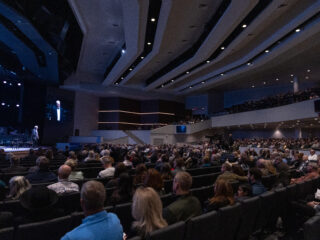Whenever something goes wrong, the first thing most of us want to do is to find out whose fault it is. Something wrong with your car? Whose fault is it? Yours for failing to maintain the car? Did your mechanic not follow the proper procedure for the make and model of your car? Did your car maker design and build a flawed automobile requiring a recall?
On and on it goes. We keep pushing and pushing with the seeming assurance that if we can find out who’s to blame, we can fix our problem. Rarely does it work that way.
I realize there are cases where assigning blame is important. There are situations where certain parties are legally liable for their behavior or negligence. There are events that require full investigations and the establishment of a legal precedent for the greater good of our society. I also know we have become a very litigious society. More and more, it seems, we settle our differences in a court of law rather than as neighbors. All of us, it seems, are looking for someone to blame.
This, of course, has led to an entire industry dedicated to blame-shifting. Every politician blames another politician, every institution blames the other, and neighbors blame each other. No one is responsible. No one is to blame. Nothing ever gets solved, and nothing ever gets better.
But I also understand that a lot of us are stuck in situations thinking that once we find the person to blame, it will fix what they did to us and solve our problem. It’s never that easy.
Think about it. Something goes wrong in your marriage. There’s a problem that causes a lot of arguing. Words are said and feelings are hurt. After months of getting nowhere, you and your spouse agree to see a counselor. You agree to abide by whatever the counselor says.
Finally, the day comes for your appointment and you can’t wait. You are convinced – of course, your spouse is just as convinced – that the counselor will say the other one is totally responsible, and you’ll be in the clear. Problem solved.
But what does the counselor say?
You’re both to blame. Life is rarely that clean. Life is rarely that easy. In most relationships – whether at work or in marriages, in communities or in nations – there’s enough blame to go around. Everyone gets a piece of the blame pie.
But only a piece, not the whole pie. Seasoned negotiators at any level understand that in any successful relationship, everybody is responsible for the problems of the relationship, and everyone has to take responsibility for getting things worked out. In the problem-solving moment, each party has to take responsibility for the consequences of their actions, both good and bad, and then, share the responsibility for making things work.
Several years ago, I was involved with a group of men who had to confront a leader of a local congregation. While we were outlining what we knew, the subject of our meeting began to talk about the blame that should be assigned to others who were involved.
I’ll never forget one of my colleague’s responses. “I don’t want you to misunderstand why we’re here,” he said. “We’re not here to place blame. We’re here to assign responsibility. We’re here to remind you that you are 100% responsible for your behavior and 100% responsible for your choices.”
100% responsible.
Now, there’s a phrase you don’t hear very much.
But what if it was?
What if husbands said, “I’m 100% responsible for my marriage”?
What if wives said, “I’m 100% responsible for my marriage”?
What if each of us said, “I’m 100% responsible for my own happiness”?
What if every church member said, “I’m 100% responsible for the mission of our church”?
The gospel sets us free from our sense of victimhood. Regardless of what anyone else has done, regardless of what anyone has done to us, we’re free to act in total obedience to Christ and His kingdom.
We may not be to blame for the situation we’re facing, but we can take responsibility to bring healing and hope to every situation in the name of Christ, regardless of how broken the situation may be.
So, the next time something goes wrong – and it will – try spending less time finding out who’s to blame and be willing to step up and take responsibility to find a meaningful resolution.
As Christ-followers, we’re not allowed to sit back and let the world simply take its own course. The work of redemption requires an interruption of the status quo. Christ interrupted history to pull us all from the darkness into the light of His love. We’re called to follow Him on His redemptive mission.
We may not be to blame for the circumstances in front of us, but we’re called to be responsible in the power of our Risen Lord to redeem whatever situation in which the Lord might place us.
It’s His world, and Jesus is 100% responsible for its redemption. He’s not to blame, but He is responsible.
And we, His children, are responsible along with Him.









